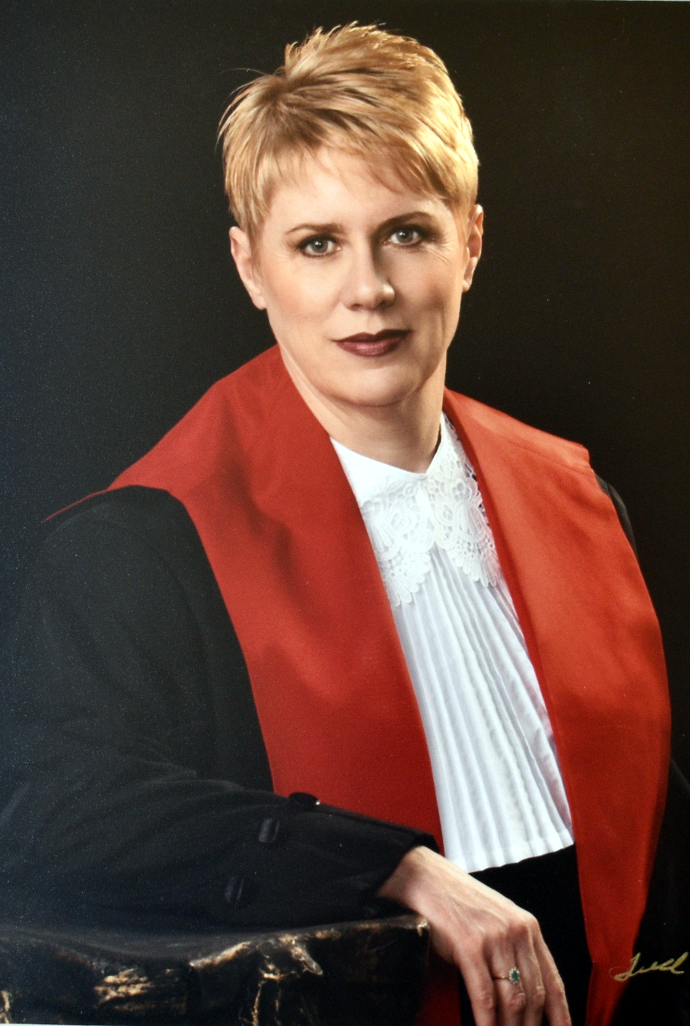A Lifelong Commitment to Learning and the Law
Sarah Kent - 6 May 2020

Justice Donna Shelley of the Court of Queen’s Bench of Alberta had not planned to pursue law school. She had her sights set on graduate studies in psychology, and it took some gentle peer pressure to change her mind.
“My best friend then and still my best friend now—June Ross, who is also on QB—convinced me I should try law school,” says Shelley, ‘79 LLB. “I blame this all on Justice Ross!”
“Forty years after I graduated from law school, I still love the law.”
That love propelled Shelley to the bench as a justice, and her love for learning brought her back to law school as the 2019-2020 Justice in Residence at the University of Alberta Faculty of Law.
As the Justice in Residence, Shelley had the opportunity to become a student all over again.
The Canadian Judicial Council Study Leave program supports lifelong learning for federally appointed judges who take up residence at Canadian universities for the academic year. The program is mutually beneficial for judges, who are able to engage in research and teaching activities, and for law schools, whose faculty and students benefit from the expertise of the justice in residence.
Only one or two judges in Alberta are selected for the study leave program each year, which is a once-in-a-career opportunity.
On top of meeting with students and appearing on a panel for a criminal evidence course, Shelley dedicated her sabbatical to researching a problem she has observed during her time on the bench.
Research Focus
“There are some litigants who I noticed kept coming back,” says Shelley. “I noticed, disturbingly, that there have been files where there have been 60-plus appearances in one lawsuit and as many as 30 judges in our court who are involved in one file.”
Shelley is troubled by how the court system, aimed at dispute resolution, is not having the intended effect for everyone. The impact of repeat appearances on children and families is particularly concerning, she says.
“I wanted to research it from not just a legal standpoint but from more of a psychological standpoint.” She’s currently writing up her findings to share with her colleagues on the bench.
Shelley was appointed as a justice to the Court of Queen’s Bench of Alberta in 2006, nominated by Prime Minister Stephen Harper. Before her appointment to the bench, she practised corporate and commercial law as a partner with McLennan Ross LLP.
While Shelley was never a litigator, her work on administrative tribunals—everything from the Law Enforcement Review Board of Alberta to the Citizen’s Appeal Panel—made the move from private practice to the bench feel natural.
“The reason I applied to be a judge was because I loved hearing people’s stories,” she says. “The process of hearing matters was not a hard transition since I had been doing it for 12 years on different boards.”
The transition didn’t come without its challenges, though, as Shelley had to learn law related to the Canadian Charter of Rights and Freedoms, which was not in place while she was in law school, and criminal and civil procedure. “On the substantive stuff, I was like an articling student all over again.”
While her time as Justice in Residence ended April 30, Shelley’s return to school this year certainly won’t be her last. “That is part of my retirement plan!” says Shelley. “I’m just going to become a student and audit courses.”